Calcasieu School Superintendent Wayne Savoy Looks Back On Almost 40 Years In Education • By Karla Wall
Calcasieu Parish school superintendent Wayne Savoy, who in January announced his retirement after nearly eight years in office — and after nearly 40 years in education — says his main focus throughout his entire career has been the children — from those under his care as a young teacher to those in the public schools he’s been responsible for as superintendent.
“I’ve always tried to make sure the children were the center of my attention,” Savoy says. “I’ve always felt that every child was important, and always tried to make (children) feel that what they have to contribute is important.”
Though Savoy says he understood from a very early age the importance of getting an education himself, a career in education wasn’t something he thought of early on in life.
The Importance Of Education
Growing up in Cankton, La., in the late 40s and early 50s, Savoy was the son of parents who didn’t receive much formal education.
“My father never even finished the third grade,” Savoy says.
But his parents, especially his mother, nevertheless knew the importance of education, and it was a principle they instilled in their son.
“My parents taught me the value of education, and of hard work,” Savoy says.
So it would follow that Savoy attended college after high school, and he entered McNeese on a baseball scholarship.
“It was my dream to become a professional baseball player,” he says. “Unfortunately, I didn’t have the size.”
But no alternative careers were in Savoy’s mind — until one of the assistant baseball coaches asked him what he wanted to do with his life after graduation. Savoy had no idea.
“Then he asked me, ‘What is it you remember most about school?’” Savoy recalls.
The answer that came to Savoy was elementary school.
“I remembered the enthusiasm, the newness, the fun. It was all new. Everything was new and exciting.”
Savoy says that the coach then told him that he should look into a career in elementary education.
“He told me there weren’t many men in education, and that the possibilities for advancement were good for a man in the field,” Savoy remembers. “I got into (education) and loved it.”
Savoy graduated from McNeese, and began his teaching career at Lincoln Elementary, where he taught “self-contained” sixth grade classes, meaning, he says, that he was responsible for teaching the students in all subject areas. He then went on to teach eighth grade math and science at the school.
From Lincoln, Savoy went to J.I. Watson, then later served as assistant principal at Bell City, in charge of grades K-8.
“I learned a lot at Bell City,” he says. “As assistant principal (along with the assistant principal in charge of the high school), we had to make sure that we had alignment all the way up through all levels. I learned a great deal about the connection between elementary, middle and high school.”
His time at Bell City also taught him, he says, the importance of students having a solid foundation before moving on to a higher grade level.
“I also learned that children come to school with their own backgrounds and legacies, and how that affects their performance,” he says.
He then served as principal at Fairview Elementary, where he continued learning the administrative side of education.
Advancing Into Administration
Savoy says he never worried about advancement — never wondered what his next job would be.
“I just loved teaching,” he says. “I was successful at it. I never minded teaching, and never got distracted by thinking about what else was out there for me.”
What was out there, though, was a position in the central office.
Savoy served as the school system’s director of human resources beginning in 1984, where he “dealt with personnel recruitment, workman’s compensation, maintenance employees.”
At the urging of the administrators he worked with, Savoy applied for the superintendent’s job around 1995, when the position ultimately went to Jude Theriot.
“I was convinced, though, that I could contribute something to the administration,” Savoy says.
When Theriot stepped down in 2005, Savoy again applied for the position, this time successfully, and took over in late 2005 — just in time to pick up the pieces left by Hurricane Rita.
Hurricanes, And Other Weather Challenges
Savoy says he doesn’t rank the challenges he and his administration have faced, nor does he focus on any challenge other than the one in front of him at the moment.
And there’ve been plenty of challenges, from ice storms to the transition to the new Common Core standards.
But, he says, coping with Rita’s aftermath was a biggie.
It was a bit daunting, he says, to “be in charge of everything and everyone that would put the school system back together.”
On the Monday after Rita hit, Savoy, — arm still in a sling, recovering from rotator cuff surgery — and five other administrators were back in town, working to begin the long process of getting schools back up and running.
“We literally made decisions in the parking lot outside the school board building,” Savoy says. “I was on the phone with the mayors of the cities in the parish.”
Amazingly, all Calcasieu Parish schools but one were back up and in full operation 26-29 days after the hurricane hit. The exception, Savoy says, was Kaufman Elementary.
“Kaufman had some students with special needs and health concerns — children with breathing issues — and we didn’t want to open it before we were sure there were going to be no problems.”
The school opened two days later than the others in the parish.
What Savoy says he perhaps remembers most about the recovery from Rita was the dedication of the parish’s teachers.
“I was amazed that these teachers came back totally focused on the children,” he says, “despite the fact that they were dealing with their own problems — the same problems everyone was facing at that time. To see that was just amazing.”
The school system’s recovery from Hurricane Rita wouldn’t have gone nearly as smoothly or as quickly, says Savoy, if he hadn’t had the full cooperation and support of outgoing superintendent Theriot.
Theriot talked with Savoy each step of the way during the recovery, offering advice when needed, Savoy says, and answering questions.
Making The Transition
And that’s the kind of support Savoy wants to offer his successor.
That’s why, though his contract is up this December, he went ahead and made his announcement to the board in January.
“I wanted to give the board plenty of time to find a new superintendent, and I plan to work with the new superintendent as much as needed to make the transition,” says Savoy.
Savoy says there have been several changes in education since his early days in the field, and there will be several challenges facing his successor, from increasingly complicated legislation to changing public support of schools.
“I would say there’s a little more apathy, on the whole, on the part of parents than there was years ago,” he says. “In the early days of my career, you couldn’t find one parent who did not think that education was important. Everyone believed in the school that their child went to.”
There are also more distractions for students, he says — more opportunities for work, for example.
“There’s more pressure on students now,” Savoy says.
The career opportunities and choices for students are vastly more numerous now than earlier in his career, says Savoy.
“Teachers have to prepare students for jobs they don’t even know about,” he says. “There are so many more technical careers now.”
One of the main changes, however, has been the amount of education legislation being passed on the state level. And legislation and politics, Savoy says, is perhaps the biggest challenge facing his successor.
“The biggest challenge (for the successor) will be figuring out what Baton Rouge will come up with next,” he quips. He’s quick to point out, however, that SWLA’s legislative delegation has always been very cooperative and supportive. “They’ve always answered questions, and have always been approachable,” he says. “That’s one thing my successor won’t have to worry about.”
However, that person will have to deal with a Legislature eager to make rules but loathe to hand over the money to make the changes required by those rules.
“The new superintendent will have to be someone who knows a good bill from a bad one, and who is able to explain the legislation, and the effect it will have on the school system,” Savoy says.
Leaving A More Creative, Analytical Administration
Savoy says he’d like to be remembered as a superintendent who truly cared about the students and teachers under his supervision.
“I think that the students, teachers and administrators in the school system know that I tried to make the children the focus of my attention; that I felt that everyone’s input was important; that I tried hard to listen to everyone’s concerns; that I was approachable, and willing to discuss concerns,” he says. “I hope they know that I realize that any accomplishments that we had in the school system during my administration weren’t because of me, but because of the outstanding individuals I was privileged enough to be able to work with.”
Savoy says he feels he’s leaving a school system with administrators who aren’t afraid to think outside the box, thanks to his supervision, and who realize the importance of data analysis to discover strengths and weaknesses, and how to correct those weaknesses.
“I also like to think I helped instill a mindset of continuous improvement,” Savoy says. “That even if we’re totally satisfied with our progress, that we realize we can do better.”
What’s In Store
Savoy, who says he’s leaving to spend more time with his family, says he also plans to hunt, fish, play golf and do yard work.
“If that all gets to be too much, I’ll cut out the yard work,” he quips.



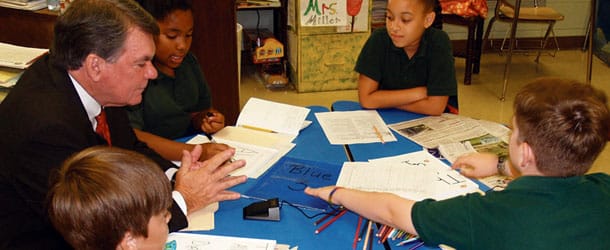
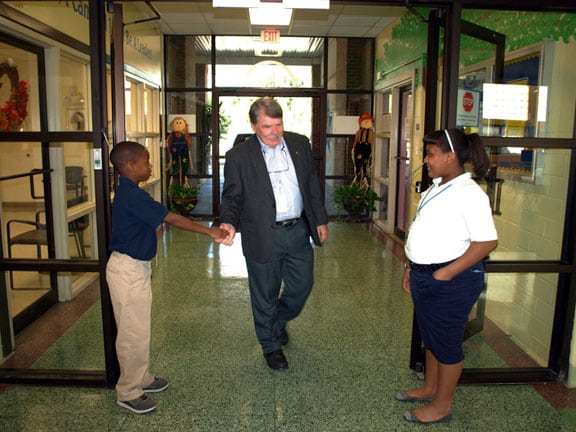
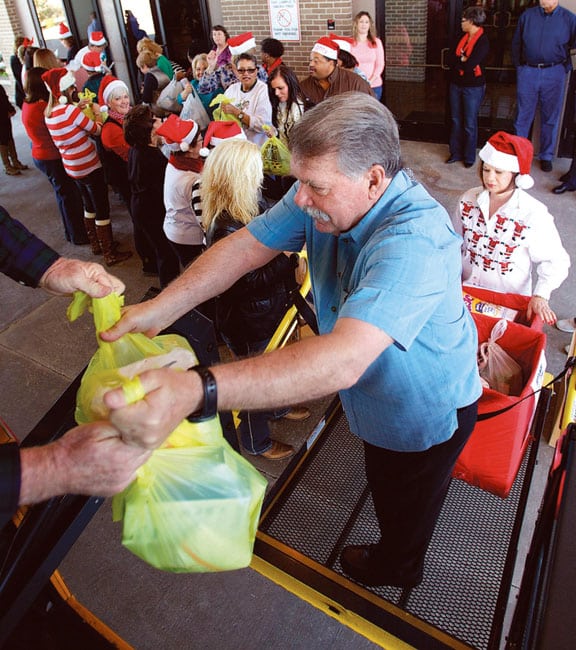
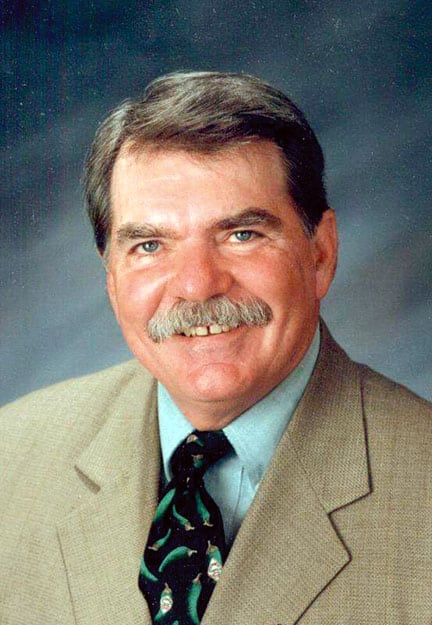
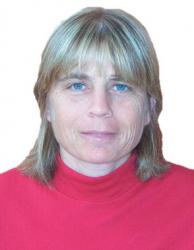












Comments are closed.